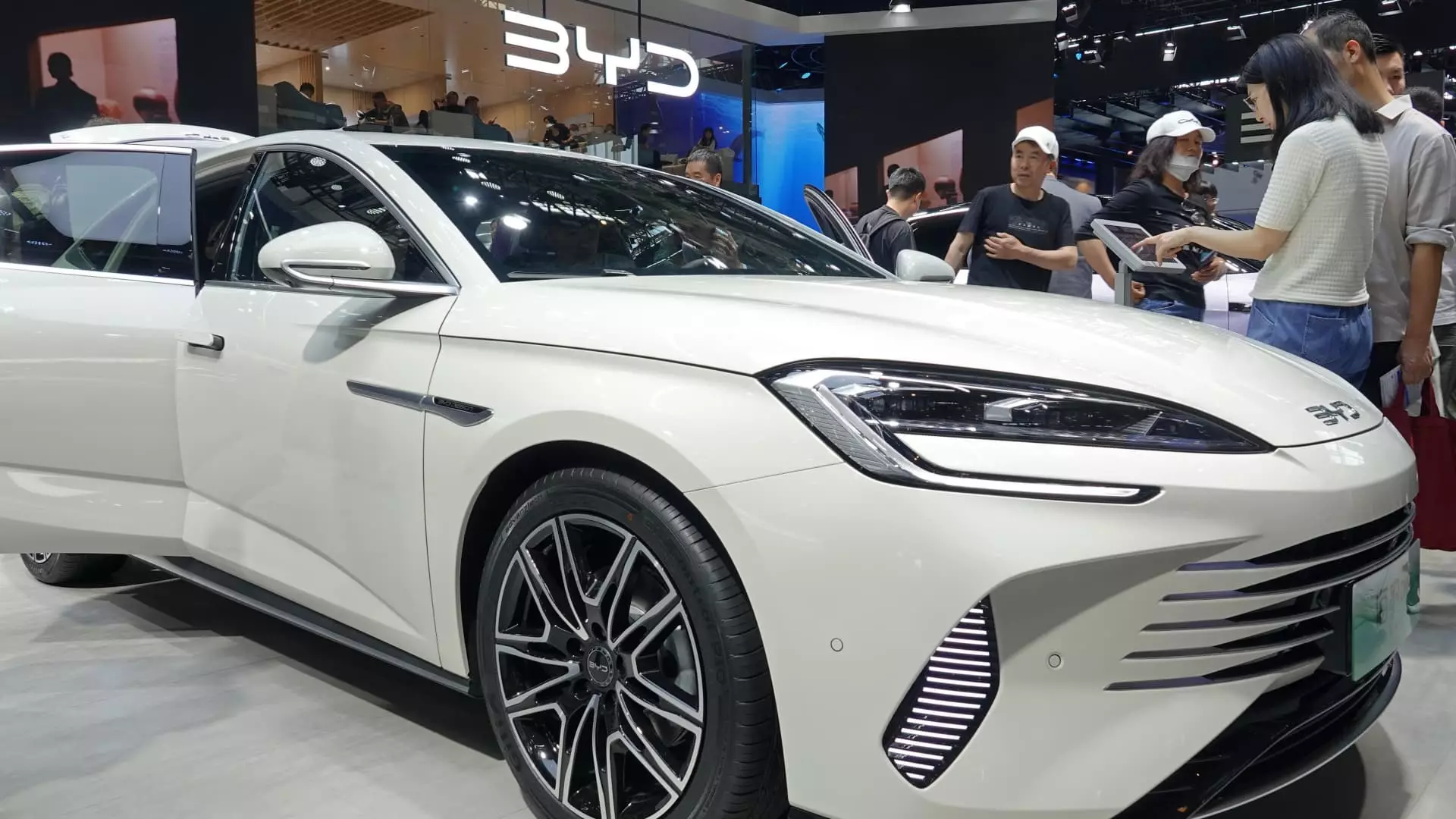The announcement of higher tariffs on Chinese electric vehicle (EV) makers by the European Union (EU) caused a surge in the stock prices of these companies. On Thursday morning, Hong Kong’s Hang Seng index saw a significant increase of 1.23%, primarily driven by gains in EV stocks. Among the top gainers were EV company BYD, which jumped 8%, and Geely, which was up about 4%. Nio and Li Auto also experienced gains of 1.75% and 2.67%, respectively. However, state-backed SAIC was the exception, with its shares decreasing by more than 2%.
The EU announced that it would impose additional tariffs on Chinese EV players with a significant presence in Europe. BYD will face extra tariffs of 17.4%, Geely an additional 20%, and SAIC the highest duty of 38.1%. These tariffs are in addition to the standard 10% duty already imposed on imported EVs. The EU probe, which is ongoing, included all three manufacturers. Chinese EV firms that cooperated in the investigation, but were not sampled, will be subjected to 21% in extra tariffs, while those that did not cooperate will face 38.1% in additional duties, according to the commission.
The EU stated that Chinese EV makers benefited from “unfair subsidization,” leading to a “threat of economic injury” to the EU’s EV industry. Despite these tariffs, they are considered modest compared to the 100% tariffs on Chinese EV imports imposed by the U.S. Additionally, the EU’s move aligns with market expectations of 20%-25% provisional duties, according to equity analyst Vincent Sun at Morningstar. The EU initiated the probe in October, with provisional duties set to be introduced on July 4 if discussions with Chinese authorities do not result in a resolution. Definitive measures will be implemented within four months of the provisional duties’ imposition, the bloc stated.
The EU’s decision to impose the highest tariff rate of 38.1% on Chinese state-backed SAIC serves as a warning to the company to establish a production facility within Europe. Joseph Webster, a senior fellow at the Atlantic Council’s Global Energy Center, highlighted SAIC’s limited presence in Europe and its failure to select a site for its first European production facility. In contrast, BYD and Geely have made substantial investments in Europe, with BYD committing to building a new EV plant in Hungary and Geely moving production of some vehicles from China to Belgium.
The EU’s higher tariffs on Chinese EV players have led to a surge in stock prices for these companies, reflecting market reactions and the potential impact on the companies involved. The imposition of tariffs underscores the EU’s concerns regarding unfair subsidization and its desire to protect the EU’s EV industry from economic harm. It remains to be seen how Chinese authorities will respond to these tariffs and whether they will result in changes to the operations of Chinese EV makers in Europe.


Leave a Reply